Hatsukokoro
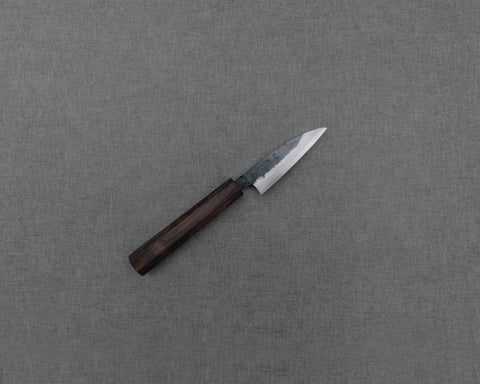
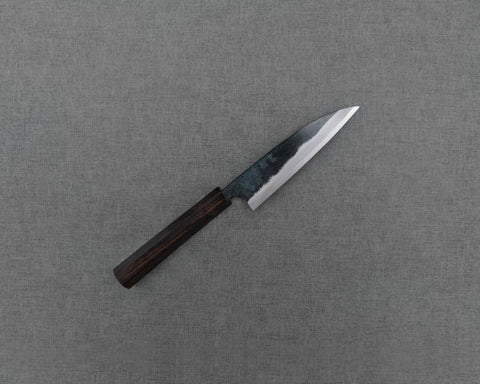
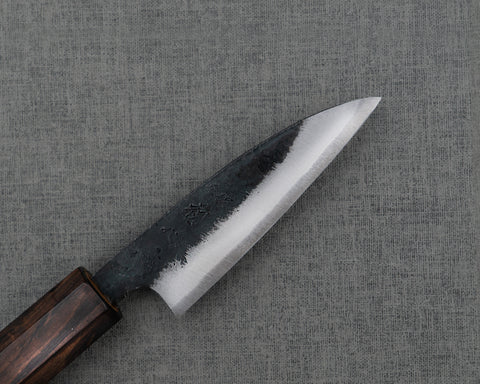
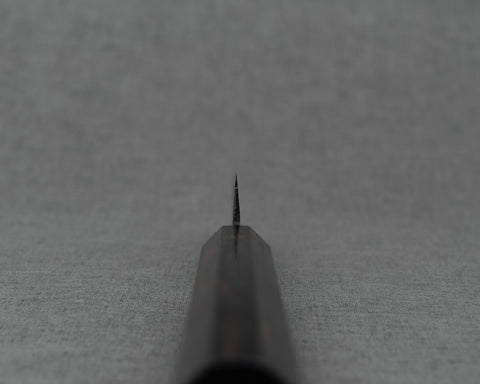
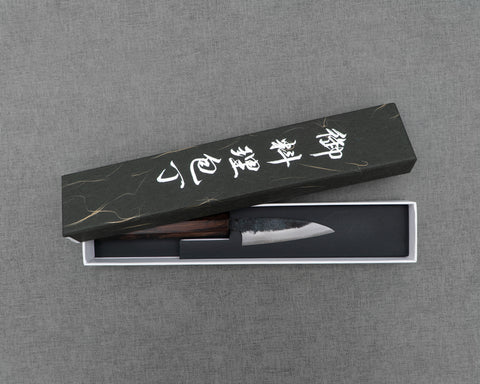
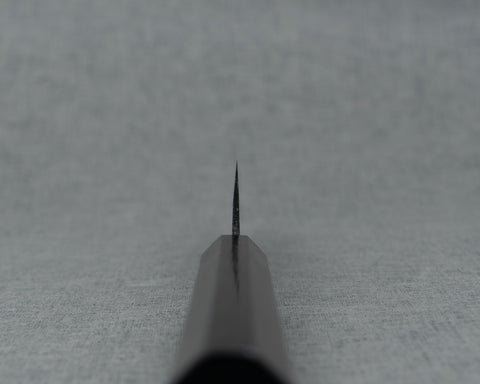
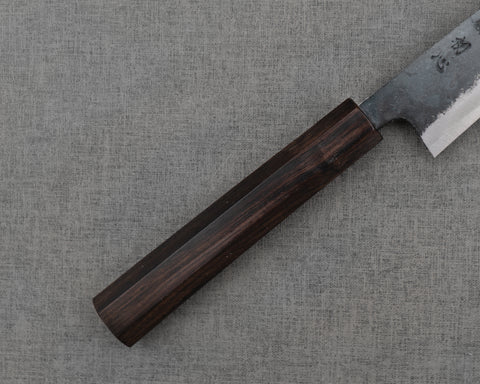
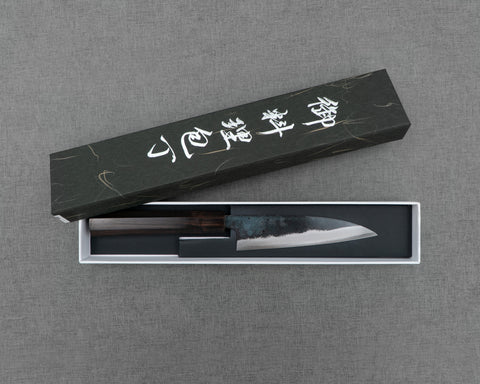
Hatsukokoro "Sumi" Aogami #2 Kurouchi Petty
目前沒有提供取貨服務
Hatsukokoro’s "Sumi" series knives are expertly hand-forged by skilled craftsmen in Tosa, Japan. The "Sumi" petty knife is available in two sizes: an 80mm blade designed for detailed tasks and a 120mm blade suited for general use. Both feature Aogami #2 (Blue Steel 2) core with a hardness of 62-63 HRC, ensuring exceptional edge durability. Each blade showcases a traditional Kurouchi blacksmith finish and is paired with a wedge-shaped hachikaku wooden handle for comfortable and secure handling.
Spec:
- Origin (Made in): Tosa, Japan
- Brand: Hatsukokoro
- Knife Type: Petty
- Blade
- Construction: Sanmai
- Grind: Double-edged Blade (50/50 Grind)
- Hagane (Core Steel): Aogami #2 (Blue #2)
- Jigane (Cladding): Soft Iron
- Hardness: 62-63 HRC
- Hand-forged, hand-ground, hand-sharpened
- Blade Finishes:
- Kurouchi
- Blade Length (heel-to-tip): 85mm (3.3") /120mm (4.7")
- Blade Height (at heel): 27mm / 30mm
- Spine Thickness
- Above heel: 1.5mm / 1.7mm
- Middle: 1.2mm / 1.2mm
- Handle
- Shape: Hachikaku (Octagonal)
- Material: Wenge
- Kuchiwa: Black Buffalo Horn
- Length: 115mm / 115mm
- Overall Length: 212mm / 246mm
- Weight: 63g (2.22oz) / 78g (2.75oz)
Care:
Aogami #2 (Blue #2) steel is a premium Japanese high carbon steel for knife making. It is not stainless, therefore you must wipe your knife dry after each use, in particular the core steel not covered by the stainless cladding. Patina will develop over time, which will appear as “discoloration” on the cutting edge, but that is the nature of carbon steel - not a defect. The stainless cladding covers a large part of the blade, making maintenance easier but still preserving the cutting and sharpening pleasure of the Aogami Super core. Avoid cutting into bones, frozen foods, hard fruit pits.
Cutting Surface:
Recommended cutting surface: wood, rubberized boards and high-end composites, and quality plastics such as polyethene make acceptable cutting surfaces, and will help protect and prolong knife’s edge. AVOID glass, metal, countertops, and other rigid, non-forgiving surfaces.
Sharpening:
We recommend sharpening all quality Japanese knives on whetstones, as we believe they yield the best results for your knives.
